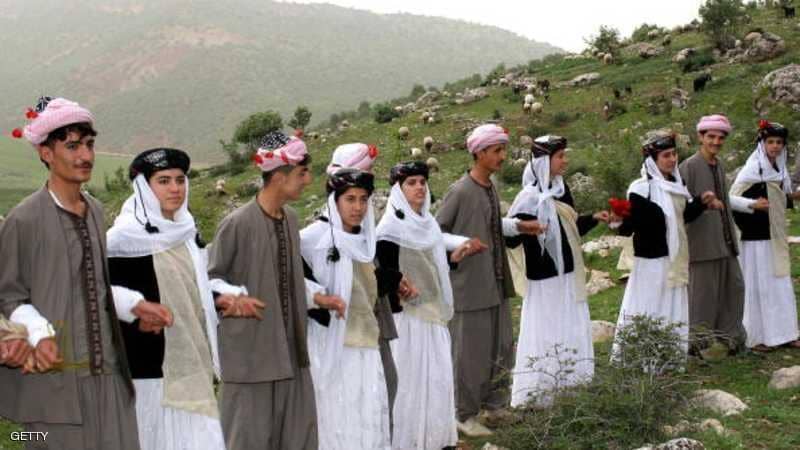The Middle East’s religious minorities are facing extinction. The world must act.
Sharon Nazarian and Aykan Erdemir/The Washington Post/March 10/2021
شارون نظريان وأيكان إردمير/واشنطن بوست: تواجه الأقليات الدينية في الشرق الأوسط خطر الانقراض. على العالم أن يتصرف
Pope Francis began his first-ever papal trip to Iraq on Friday, marking a watershed moment in relations between the Catholic Church and the Middle East. Yet for all the optimism of the Pope’s message, his visit also serves to remind us that Christianity and other minority faiths of the region are facing dark times.
The Middle East is the cradle of the three Abrahamic faiths that have more than 4 billion adherents around the globe. The region remains home to some of the world’s most ancient languages, cultures and heritage sites.
Yet oppressive governments and violent extremist movements have been busy erasing the Middle East’s diverse religious communities. Today, Syria and Yemen have lost almost all of their Jews, while Turkey has done the same with its Chaldean Christians, ethnic Syriacs who follow the Catholic rite. Iraq’s Yazidis, a Kurdish-speaking community that adheres to a long-persecuted ancient monotheistic faith narrowly escaped destruction during the Islamic State’s genocidal campaign. Iraq’s Mandaeans, followers of another indigenous Middle Eastern faith, also fear extinction.
The U.S. government should take a stand to defend diversity and pluralism in the Middle East and beyond, in concert with its transatlantic allies and other partners. Security assurances to protect embattled communities from future genocidal campaigns, substantial development aid for rebuilding them and support for inclusive institutions can all play a role.
Mideast religious minorities face a particularly potent threat from the insidious collaboration between authoritarian states and violent extremist groups, as proxy wars have come to replace conventional warfare between nation-states. The growing footprint of non-state actors has exacerbated the danger to religious minorities.
The Islamic State, for example, recruited foreign fighters from all corners of the globe as it targeted the Yazidi community with its genocidal campaign of mass executions, rape and enslavement. As the Economist recently noted, many Yazidis who escaped the immediate threat when the Islamic State was defeated militarily are still fighting for their survival.
Although Syrian dictator Bashar al-Assad presents himself as the protector of minorities, especially Christians, he has executed and tortured critics regardless of their religion. The Assad regime’s indiscriminate massacre of its own citizens with barrel bombs and chemical weapons not only received financial support from Moscow and Tehran, but also utilized Russian private military contractors and Iran’s militias recruited all the way from Lebanon to Afghanistan.
In northern Syria, according to a report of the U.N. Commission of Inquiry on Syria, Turkey’s proxies committed war crimes targeting Kurds and Yazidis, including hostage-taking, torture, rape and pillaging, in addition to violating international humanitarian law by looting and destroying cultural property.
The Bahai faith remains horrifically targeted in Iran, where its adherents face a continued dehumanizing assault from the authorities. The Islamic republic’s systematic persecution of the Bahai community also extends beyond its own borders. In Yemen, Tehran’s Houthi proxies have subjected the last few Bahais there to arbitrary imprisonment and torture.
Since Turkey’s failed coup attempt in 2016, the country’s increasingly authoritarian government intensified its scapegoating of Christians, Jews and Alevis (a Muslim minority). The revisionist historical dramas on Turkish state television have become the new means through which antisemitic, anti-Christian and anti-Western conspiracies are distributed in multiple languages around the world. Social media platforms compound the problem by amplifying hateful messages from state-funded media and the propaganda outlets of violent extremist groups.
Since the Iranian revolution, the Islamic republic has not only decimated the country’s Jewish community, taking its numbers from 100,000 to below 9,000, but also threatened to wipe the Jewish state off the “global political map.” Last year Iranian Foreign Minister Mohammad Javad Zarif went so far as to invoke the Nazi phrase “the final solution,” echoing Supreme Leader Ayatollah Ali Khamenei’s vow to uproot and destroy the “cancerous tumor” of Israel. A new Anti-Defamation League study of Iranian textbooks found that the Islamic republic teaches antisemitism and incites schoolchildren against the Jewish people as well as the United States.
No scientific study, media report or opinion poll can give a more accurate account of the state of the Middle East’s minorities than demographic trends. As vulnerable minorities vote with their feet, we continue to witness a mass exodus of ancient communities. A 2019 report commissioned by the British foreign secretary warned that Iraq’s Christian population fell from 1.5 million before 2003 to possibly less than 120,000. Turkey’s Greek Orthodox, Jewish and Syriac Christian citizens are more likely to live in diasporas rather than in their original homes. Coptic Christians still number around 10 million in Egypt, but according to the Hudson Institute’s Samuel Tadros, the Coptic church is blossoming “outside Egypt’s borders.”
U.S. leadership and cooperation with transatlantic allies are imperative to reversing these alarming trends. As the Biden administration emphasizes making human rights central to U.S. foreign policy, the Middle East’s endangered religious minorities should be one of its priorities.
*Sharon Nazarian is the Anti-Defamation League’s senior vice president for international affairs. Aykan Erdemir is senior director of the Turkey program at the Foundation for Defense of Democracies and a former member of the Turkish parliament. Follow Aykan on Twitter @aykan_erdemir. FDD is a Washington, DC-based, nonpartisan research institute focusing on national security and foreign policy.























